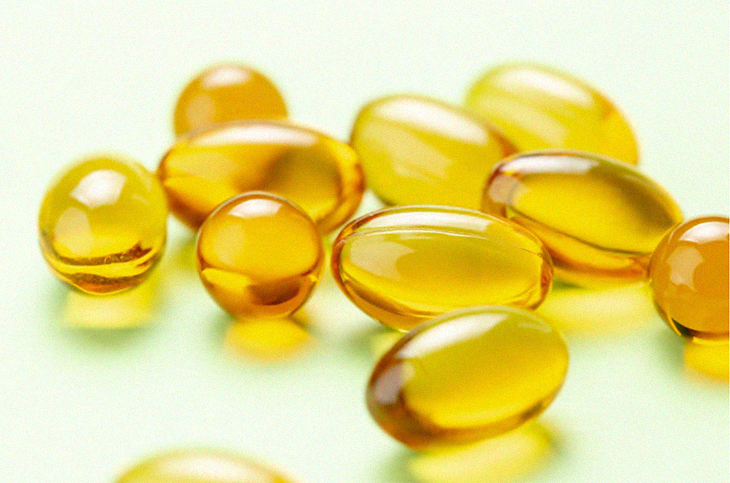
There is research that has linked a higher risk of getting Covid-19 as well as suffering from worse effects of the disease if they have a vitamin D deficiency, mostly among Blacks and Hispanics.
A new observational study also proposes that even though patients with “sufficient” vitamin D levels – as defined by current guidelines – Black people are still at higher risk of Covid-19. The guidelines for proper vitamin D assessment is currently based on keeping strong bone health rather than on immune function.
Notably, vitamin D actually plays a vital role in a number of body functions such as maintaining health bones and teeth, regulating calcium levels, as well as aiding the immune system.
The body can actually get vitamin D from dietary sources such as salmon, cod liver oil and supplements, to name a few. But the body also has the ability to create its own vitamin D in the skin when it’s exposed to sunlight.
Yet, for those with darker colored skin and low exposure to sunlight, it can be more difficult to keep a sufficient or substantial level of vitamin D, especially during the colder winter months.
In fact, one study has learned that in the United States, around 42% of people had a vitamin D deficiency overall. However, this percentage grew to almost twice the amount with 82% among Black people, and a little less at 70% among Hispanics.
Recently, compiled evidence has also revealed that individuals that have a vitamin D deficiency have a more likely chance at testing positive for SARS-CoV-2, the virus that causes Covid-19. Moreover, they could also possibly develop more severe cases of the disease as well.
This is one way to partially explain why the pandemic is unfairly affecting the Black, Hispanic and other non-white populations too.
Some clinical trials published in bmj.com show that taking vitamin D supplements can actually help in protecting individuals against numerous respiratory infections that occur from viruses.
In fact, research suggests that by consuming a vitamin D supplement based on the recommended daily intake in current guidelines could possibly reduce viral infections amongst those that are not actually deficient. That’s possibly because the recommended intake is actually based on levels needed to maintain healthy bones and not protection from viruses or infections.
According to Dr. David Meltzer, Ph.D., alongside his colleagues from University of Chicago, IL, they were curious to find out if this link could also be true when it comes to vitamin D and Covid-19.
Doing Vitamin D Blood Tests
A research team investigated the medical records of 4,638 individuals that had vitamin D blood tests in the 12 months prior to doing a SARS-CoV-2 PCR test at the University of Chicago Medical Center (UChicago Medicine).
The research team took the length of time from when the participants did a vitamin D test, and other subsequent treatments, to figure out what their vitamin D levels were 14 days before they did their PCR tests.
They also took into account other factors that could possibly have put them at an increased risk of contracting Covid-19 like race, sex, age and possible medical conditions.
From what they found, in total their research showed that ‘211 Black participants and 102 white participants tested positive for SARS-CoV-2.’
The research team also found out that among the Black participants, ‘the risk of testing positive was 2.64 times as high for those with a serum vitamin D level of 30-39.9 nanograms per milliliter (ng/ml) – a “sufficient” level – as it was for those with a level of at least 40 ng/ml.’
What this means is that the results showed an significant or substantial protective effect from those who had levels that showed they were above the range that experts believe to be enough.
Research showed that Black participants that had levels of vitamin D of at least 30 ng/ml, with every incremental 1 ng/ml increase in their vitamin D levels actually brought about a 5% decrease in the risk of them testing positive for SARS-CoV-2.
Chief of hospital medicine at UChicago Medicine and lead author of the study, Dr. Meltzer explained, “These new results tell us that having vitamin D levels above those normally considered sufficient is associated with decreased risk of testing positive for [SARS-CoV-2], at least in Black individuals.”
He added, “This supports arguments for designing clinical trials that can test whether or not vitamin D may be a viable intervention to lower the risk of the disease, especially in Persons of Color.”
When it came to white individuals, there were no statistically substantial associations between vitamin D levels and their risk of testing positive for SARS-CoV-2. The research team believes that this is due to the relatively low number of positive SARS-CoV-2 tests in their sample of white people.
At the same time, the numbers of participants belonging to other racial groups, which included Hispanics, were also too small to bring about statistically substantial results. This study is published in the JAMA Network Open journal.
Making A Case for High Dose Supplements
The researchers go on to say, “These results increase the urgency to consider whether increased sun exposure or vitamin D supplementation could reduce Covid-19 risk.”
Their study goes on to say that ‘less than 5-10% of adults in the U.S. are likely to have vitamin D levels greater than 40 ng/ml.’ In order to achieve these levels through a supplement, and not through increased sun exposure, individuals would need to take a higher dosage than that of the daily recommended amount.
Dr. Meltzer, “Lifeguards, surfers; those are the kinds of folks who tend to have more than sufficient vitamin D levels. Most folks living in Chicago in the winter are going to have levels that are well below that.”
According to the National Institutes of Health (NIH), for adults ages 19-70 years, the recommended daily intake is 600 international units (IU) which is equal to 15 micrograms (mcg). As for adults aged 71 and above, the recommended amount increases to 800 IU or 20 mcg daily.

Meanwhile in the United Kingdom, the recommendation from the National Health Service (NHS) is 400 IU or 10 mcg daily. The also advise people to use vitamin D supplements during the fall and winter months, but that if there are people at high risk of deficiency, then they should take it all throughout the year.
Dr. Melter also says that while certain studies have shown that vitamin D can decrease inflammation and improve one’s immune function, not all evidence has been the same across the board. Dr. Melter believes that a part of this could be due to testing doses that are just too low to truly boost the immune system.
He explains, “Based on these results, we think that earlier studies may have given doses that were too low to have much of an effect on the immune system, even if they were sufficient for bone health. It may be that different levels of vitamin D are adequate for different functions.”
Notably, one major limitation to the current study is that ‘while it can demonstrate an association between vitamin D levels and SARS-CoV-2 infection risk, it cannot demonstrate that one causes the other.’
In order to further study this issue, two clinical studies by researchers at the University of Chicago and Rush University in Chicago, IL are attempting to find out if consuming a daily vitamin D supplement can truly prevent Covid-19 or at least lessen the severity of the virus’s symptoms.
Socioeconomic Inequality Found in the Study
Researchers also shared that some of the study results were surprising. For example, Black individuals were not at an increased risk of getting Covid-19 if they had vitamin D levels of 20-30 ng/ml as compared to those that had levels that were 40 ng/ml or over.
Furthermore, individuals that had levels below 20 ng/ml seemed to have lower risk of contracting Covid-19 than those that had levels of 30-40 ng/ml. The study authors propose these discrepancies could be explained by the possible variations of vitamin D treatments in the participants, yet they also share that more research in this area is needed.
The new study authors also highlight how Black people’s increased chances of getting Covid-19 could be possibly due to the social and economic inequities.
They explain, “The significant association of vitamin D levels with Covid-19 risk in Black individuals that was not found in white individuals could reflect their higher Covid-19 risk, to which socioeconomic factors and structural inequities clearly contribute.”



